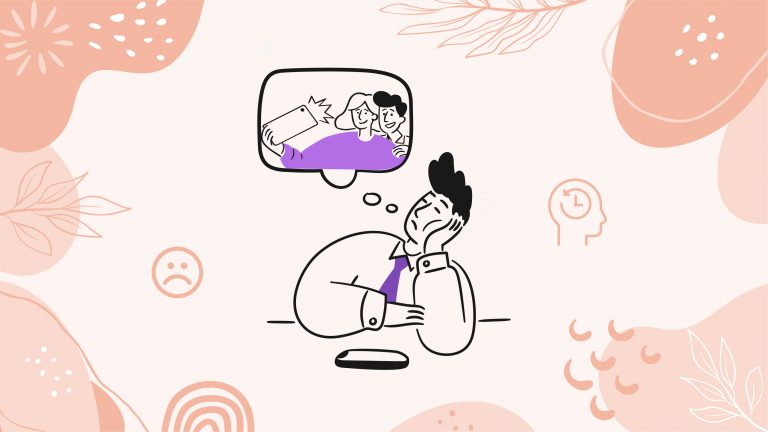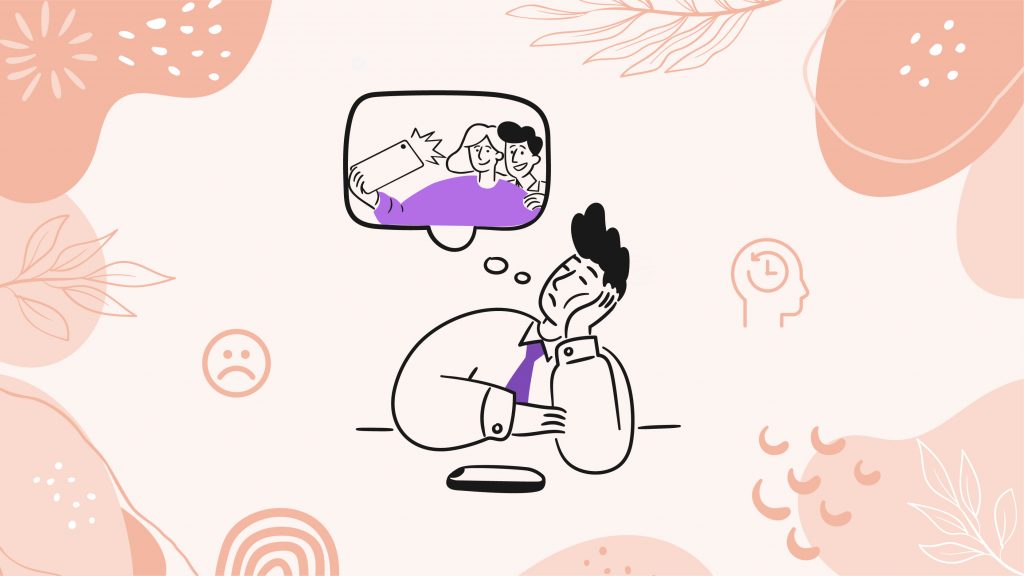Do you often feel that you carry past traumas and grudges? Are you stuck in clinging to past things and feeling burdened? If yes, understand that it isn’t uncommon.
Many still haven’t figured out how to let go of their past. Letting go of the past is a life skill we need to master, and it is often shaped by our unique experiences and the lessons we learn from our mistakes.
The vigor and vitality we deserve to carry with us go missing when we carry the baggage of our past. Also, if we truly want to live a life where we aren’t becoming the hostages of our past, we must free ourselves from the emotional weight the past imposes on us.
How do I let go of the Past?
Letting go of the past needs a peaceful and calm refuge within. When we decide to no longer live in the past bubble and release all the thoughts, feelings, and emotions that are bringing us down, we become lighter from within and start vibrating to the higher frequencies of love, hope, and joy.
This often demands a high commitment and resilient approach towards our limiting beliefs. When we are determined to improve the way we feel, we naturally feel inclined to seek out positive experiences, surround ourselves with uplifting influences, and embrace new perspectives that empower our growth and transformation.
Signs that you haven't forgotten your past
- You get frequent flashbacks and often find yourself reliving your past.
- Your past events and instances determine your present behavior and interactions.
- You often get the feeling of being stuck and stagnant in life.
- You experience physical symptoms (insomnia, anxiety, headaches, etc.) related to your past pains and traumas.
- You often engage in negative self-talk and self-criticism.
- You remain avoidant of the people and situations that remind you of your past.
- You often feel the burden of carrying past regrets or guilt from your actions.
- You find it difficult to move on and embrace new relationships and opportunities due to your lingering attachments from the past.
- You often get emotional triggers coming from your past events and traumas.
Ways to Forget Your Past
It is crucial that we drop the burden of our past. When we unknowingly remain in the clutches of the past, we lose our energy, enthusiasm, and motivation to lead the life our way. This is where it becomes important to know the factors draining our energy and keeping us from living life to the fullest.
#1: Acknowledge Your Dense Emotions
We often run from our emotions, especially when they are dense enough to make us uncomfortable. We find comfort in escaping our emotions and keeping the blame, hurt, and regret within ourselves. But the solution lies in the courage to face these emotions, process them, and release the negative weight they carry.
Whenever you feel stuck in the shadows of the past, unresolved emotions are often the reason to keep you stuck in the loop. This is when you must try to acknowledge them and process them. One of the best ways to process your emotions is to journal them from time to time. It will not only help you understand yourself in a better light but also allow you to gain different perspectives on the situations that were bringing you down.
🎭 Analogy
Consider your past as an old book on a bookshelf. It is lying on the shelf and has stories, but it doesn’t have to be read every day. Simply acknowledge that it is lying on a shelf without letting it control your present.
How to know it worked: You’ll notice a shift in your mindset, where the past no longer holds power over your emotions and decisions.
#2: Learn to Accept
The next step is to accept whatever comes into your understanding. When you get into a deep contemplation mode, you might get certain realizations and epiphanies that may not be pleasant and hard to gulp. Be accepting enough to accept your shortcomings and mistakes and let go of the other’s behaviors that are not justified in your eyes. This way, you can move forward with grace and authenticity.
Let’s see how you can implement it to see the quick changes in yourself. Suppose you missed a deadline and have to bear the consequences of not being promoted in your office. Give yourself the discount of giving your best in the given circumstances. Accept it and move ahead with the lesson you have learned from this episode.
How to know it worked: You will notice a decrease in feelings of guilt or frustration regarding past mistakes. You’ll feel more at peace with yourself and your decisions, allowing you to focus on personal growth rather than dwelling on the past.
#3: Practice Mindfulness and Meditation
Consider practicing mindfulness and meditation to restore your lost calm. These are fantastic tools for keeping our minds in a healthy frame. Have you ever noticed how a small session of sitting in a calm and quiet setting brings you the tranquility you search for?
You can also use apps like Headspace or Calm to bring it to the next level. They offer guided meditations for different themes (sleep, stress, focus, peace, relationships, creativity, etc.). Start by practicing it for at least 5-10 minutes a day. For this, you may use a singing bowl and include body scan meditation or breathwork to engage your senses fully.
How to know it worked: You’ll notice increased clarity and focus in your daily activities. You might also find yourself reacting more calmly to stressors and feel more grounded and centered throughout the day.
#4: Forgiving is Crucial
You might be surprised to know that forgiveness often depends on your perspective. You may think it’s about forgiving others for their wrongdoing, but we become the cost-bearers of holding a grudge against others. How? By dwelling on negative emotions and not allowing ourselves to breathe in the fresh air of hope, happiness, and joy.
Let’s see how we can implement it in our lives. For example, you were hurt by someone in the past, and it’s lingering in your mind. Try writing them a handwritten letter expressing your feelings. See how you feel after relieving yourself of the burden of those unresolved emotions and giving yourself the opportunity to move forward with a lighter heart.
How to know it worked: You will feel lighter and less burdened by anger or resentment. If thoughts of the person or situation arise, they won’t evoke the same emotional intensity as before. You may find it easier to move on and engage with others.
#5: Focus on Creating New Experiences
The most effective way of moving from your past is to create new experiences. When you decide to move on from the hurt of the past and seek determination in creating positive experiences for yourself, you’ve already taken the first step in exploring new paths—leaving your past behind.
You may start by exploring new places with your friends, learning a new skill, or following a passion that might ignite the inner joy and vitality within you. When you consciously make efforts to create new zones and territories for your fulfillment, you’ll soon grow out of the past trap that has been keeping you stuck. Also, it will add variety to your routine and enrich your life in many other ways.
How to know it worked: Your new experiences will make you feel excited and fulfilled. Feelings of stagnation or monotony will be noticeably reduced, and you may find yourself more engaged and enthusiastic about life.
Practical Tips to Cope With Painful Memories
- Focus on self-care. When you focus entirely on taking care of yourself, whether it’s consuming meals on time, nurturing yourself with positive thoughts, or becoming more calm and composed, you naturally let go of the grip of your past thoughts and memories.
- Make it a habit to write down your thoughts. It will help you bring your complete focus onto yourself, and you’ll be able to understand your emotions more clearly, track your progress, and gain a deeper sense of self-awareness.
- Don’t give your power to others. Understand that you might not get the closures or responses you expect from others, and getting disappointed in this process is inevitable. Try to stand in your own power and give them the discount of acting according to their impulses and understanding.
- Let go of hard feelings. Carrying hate, resentment, and other negative emotions within yourself will only ruin your life. Understand that harboring them within is like holding a hot coal in your hand, which will only burn your hand.
- Ensure you keep a healthy distance from those who trigger your adverse reactions. It is a part of self-care where you understand your need to distance yourself from people who negatively impact your mental and emotional well-being.
- Sharing your feelings with friends and family is again an excellent way to forget your past and move towards better experiences in life. When we talk to someone, we naturally feel better.
Final Reflection
Understand that forgetting the past is not about erasing the memories. It’s about processing the hard emotions that you are harboring within and releasing them. When you follow this process, you eventually work towards expanding your perspective. For this, you can follow practical steps like acknowledging your emotions, letting go of your regrets, practicing forgiveness, and so on.
Choose to focus on the present and the future, and you’ll find that the past, while part of your story, does not define you.
FAQs
Yes. When we come to terms with bad experiences and decide to let them go from our thoughts and memories, the past becomes ineffective. It’s all about processing our emotions and reflecting on the instances that brought us down.
The right question would be, can we get a place where bad memories lose their grip over us? We, anyway, don’t feel the need to forget good memories. The best way in which negative memories lose their clasp over us is to fully process them and allow them to fade as we move ahead in life.
There is no fixed time when you can let go of the past. It all depends on how you decide to move past your bitter episodes. Try to adopt a growth mindset and view things from the lens of humility and compassion—recognizing that every experience, whether positive or negative, contributes to your personal growth and understanding.
Getting rid of past regrets and guilt is of utmost importance. When we get into the loop of feeling guilty about our past mistakes, we overlook the perspective of learning from our mistakes. Instead of making the actual changes in our behavior, we end up feeling bad—wallowing in the regret of our past deeds.
This usually happens when you haven’t yet processed the emotions. Leaving the issue unresolved and not addressing the actual concern is the real problem.





















